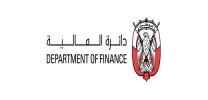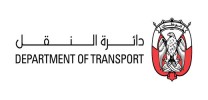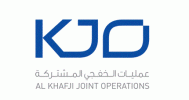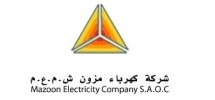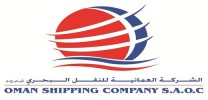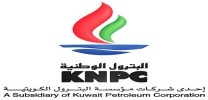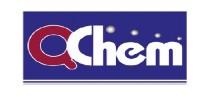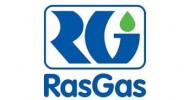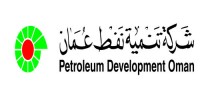
Certificate in Logistics and Supply Chain Management
Course Introduction:
It has now been established without any doubt whatsoever that lean supply chains and efficient logistics systems lead directly to increased bottom line profits.
Leading edge companies which successfully gain competitive advantage and which are able to implement immediate cost savings, are those, which possess knowledgeable and skillful logistics professionals
As more and more responsibility is placed on the Logistics function, the need has intensified for its practitioners to be highly skilled in the various elements of Supply Chain Management and to be completely up to date with best practices in the industry both national and international. Logisticians must take their place alongside engineers and accountants as proficient and exceptionally well-trained professionals.
Many companies wishing to up-skill their Supply Chain Personnel have found that there is a glaring lack of structured Logistics training available. The Chartered Institute of Logistics and Transport (CILTI), the professional body for Logistics professionals, is dedicated to bridging this competency gap and to enhancing the professionalism of those involved in the industry.
Course Objectives:
· Manage global supply chain complexity and risks
· Protect sales and revenue growth through efficient execution
· Anticipate surprises and avoid problems within global material, information and financial flows
· Take advantage of uncertainty through collaboration and integration
Who Should Attend?
This top supply chain-training program is for senior executives responsible for supply chain, procurement or operations.
Course Outline:
Logistics Concepts and Function
· What is Logistics
· Origin and Evolution of Logistics
· Concept of Physical Distribution Management
· Activities carried out by Logistics Organization
· Logistics Strategy Planning
Packaging
· Role and basic purpose of packaging
· Factors constituting efficient packaging
· Various materials used in packaging
· Criteria for selection of packaging
· Generation of packing list
· Marking and labelling of goods
Logistics Planning
· Number of warehouse and locations
· Types of material handling equipment (MHE)
· Distribution channel
· Customer hardware and software procurement
Tactical Planning
· Modes of transport
· Inventory target and policy
· Performance indicators
Operational Planning
· Frequency and size replenishment
· Warehouse operations
· Delivery route and schedule
Customer Service Management and Principles of Financial Accounting
· Importance of customers service in logistics
· Implementing customer service strategy in logistics
· Cost – service trade – offs
· Components and cost of logistics
· Major costs elements
Transportation
· Characteristics and modes of transportation
· Factors to consider in selection of modes of transport
· Sources of information for various transportation mode
Documentation
· Purpose and types of documents used in freight both import and export
· Commercial documents
· Official documents
· Insurance documents
· Shipping documents
· Financial documents
Trade Terms
· Purpose of trade terms
· Purpose of Incoterms
· Meanings of trade terms
Methods of payment/settlement
· General methods of payment
· Various methods of settlement
Role and Functions of Warehouse
· Types of warehouse
· Warehouse services
· Operations in a warehouse
Warehousing Layout and Planning
· Different activities in warehouse operations
· Importance of goods warehouse operations
· Importance of goods warehouse layout
· Factors affecting warehouse planning
· Warehouse utilization and storage
· Calculating space requirements
· Factors affecting Warehouse layout
Inventory Management
· Principles of inventory management
· ABC Analysis
· Stock Taking and cycle count
· Methods of taking physical inventories
· Stock discrepancies
· Forecasting techniques
Product Knowledge
· Types of products handled in a warehouse
· Controlling authorities for various types of products
· Storage conditions for various types of products
· Methods of handling for different types of products
· Products life cycle
Bar Coding
· Importance of bar coding in warehouse
· Advantages of using barcodes
Methods of Ordering Pricking
· Definition
· Pick lists and its importance
· Various methods of order pricking
· Order picking process
Issue and Dispatch of Goods
· Goods issue procedure
· Methods of issue stores for internal use
· Procedure of dispatch of goods
· Reports
Storage Systems and Material Handling Equipment
· Importance of storage systems
· Various types of storage systems
· Precautions during storage
· Various aspects of material handling
· Objectives and benefits of proper material handling
Housekeeping, Safety and Security in Warehouse
· Importance of security in warehouse
· Safety in warehouse
· Housekeeping and 5S principles
· Personnel safety equipment
Receipt and Inspection of Goods
· Tasks involved in receipt and issue
· Goods inspection procedure
· Documents relating to delivery of good
· Damage goods handling
Importance of Computers in Warehousing and Logistics Management
· Types of computerized systems used in logistics industry
· Benefits of using computers
· Function of Electronics Data Interchange
Applications of Computers in Logistics Industry
· Basic roles of computers in logistics
· Software programs used in logistics
· Application of computers in automated warehouse systems
Computerized Picking and Shipping Transaction
· Process of picking and shipping using computer
Computerized Order Picking
· Order picking in a automated warehouse environment
Computerized Inventory Control and Management
· Inventory control using computers
· Interpretation of computer generated forms
Computerized Receiving Systems
· Process of receiving using computers
Filling Systems
· Filling styles
· Methods of classification of files
Logistics Operations
· Identification of appropriate packing material – internal and external
· Packing of goods
· Marking and labelling
- Types of goods
- Destination
- Weight
- Instructions
Warehousing Operations
· Order Picking
- Understanding picking list
- Identification of storage location
· Receiving, Inspection and Moving Documents
- Analyzing goods receipts documents
- Use of appropriate material handling equipment
· Maintaining Material Handling Equipment
- Preventive maintenance procedures
- Breakdown maintenance
Module: Computer Applications
· Data entry for storage and issue of items
· Updating of inventory
· Generation of pick list
· Generation of inventory reports
Course Methodology:
A variety of methodologies will be used during the course that includes:
· (30%) Based on Case Studies
· (30%) Techniques
· (30%) Role Play
· (10%) Concepts
· Pre-test and Post-test
· Variety of Learning Methods
· Lectures
· Case Studies and Self Questionaires
· Group Work
· Discussion
· Presentation
Course Fees:
This rate includes participant’s manual, Hand-Outs, buffet lunch, coffee/tea on arrival, morning & afternoon of each day.
Course Timings:
Daily Course Timings:
08:00 - 08:20 Morning Coffee / Tea
08:20 - 10:00 First Session
10:00 - 10:20 Coffee / Tea / Snacks
10:20 - 12:20 Second Session
12:20 - 13:30 Lunch Break & Prayer Break
13:30 - 15:00 Last Session





.jpg)

























